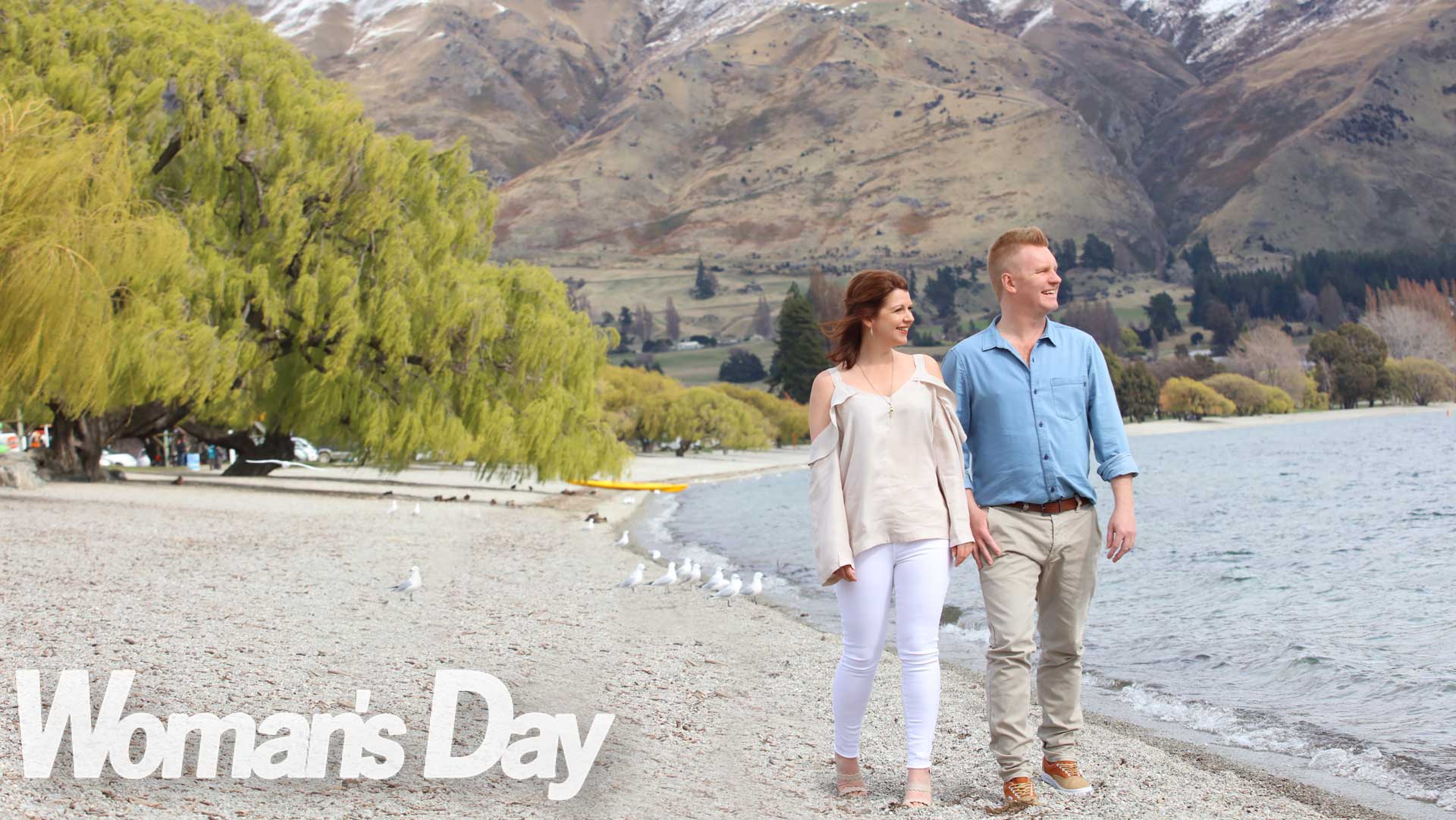Friendships are the bedrock of a woman’s life, offering support, encouragement and trust. Most of us wouldn’t know what to do without them and there are good reasons why.
And while some are not meant to last forever, those that do require real tangible commitments. Here three experts share their insights into what can make or break our friendships.

Why do women need friends?
“As females there are certain life experiences we go through and various physical and emotional needs that just require another woman who can relate to them, and our female friends can provide us with that necessary support,” explains US-based friendship coach, sociologist and author of Friendshifts and When Friendship Hurts, Dr Jan Yager.
“We also need friendships to feel a sense of connection,” adds clinical psychologist Samantha Clarke.
“Connection and relatedness have been identified as fundamental for wellbeing and life satisfaction.”
Research published in the Proceedings of the National Academy of Sciences, which studied the interplay between social relationships and our long-term physical health, found having strong social bonds throughout life influences our wellbeing and reduces health risks such as heart-disease, stroke and cancer.
Loneliness, living alone and social isolation, however, can take a physical toll and according to studies can take years off our life expectancy. A 2016 survey by Lifeline Australia found eight in 10 Australians felt that loneliness was increasing in society while 60 per cent said they often felt lonely.
According to Jenny Douglas, couples and family therapist with Relationships Australia, when we have social relationships we’re more content and enjoy greater levels of happiness and positivity.
“We benefit from our friends’ kindness, compassion and sense of humour, which makes us more resilient and enjoy long-term health,” she says.
“In turn, although we have to be able to handle being alone at times, feeling that people like you and knowing that when you’re in a bad mood you have friends with whom you can share what you’re going through, can really lift you out of challenging mental states and make you feel better,” adds Yager.
“This confirms how pivotal friendships are as they extend our lives as well as help improve their quality.”

Choose your friends wisely
Apart from the everyday laughter, comfort and understanding that friendships can provide, the bonds we create affect us on a much deeper level, too. By being aware of how our friends impact our lives, we can be wiser in the company we keep and learn to optimise the relationships we have.
As social creatures our tendency is to mimic the actions of those around us – making our friends’ habits contagious. Research studies show we subconsciously mirror our friends’ eating habits – both in what we eat but also how much – and their exercise patterns.
This makes it more likely that we’ll eat healthily and exercise more when our friends do, but if one friend becomes obese, our chances of following increases by a staggering 171 per cent.
“While choosing our friends is important, because who we spend time with influences our decisions around many behaviours, so is being clear about what you actually want from a friendship and then choosing friends who help to meet those needs,” Clarke advises.
“If we don’t choose wisely we might feel disappointed or find ourselves hooked into a problematic relationship which can cause significant stress and become toxic for us.”
Clarke explains how we may have a tendency to be drawn to relationships which reflect unresolved conflict in our lives – like choosing a friendship that is similar to the difficult relationship we had with our mother – something known as repetition compulsion.
“If this is the case, awareness of our own dynamics and ourselves can be very helpful so we go into the relationship with open eyes,” she says.
One way of recognising toxic friendships is by being aware of your experience – what you’re feeling when you engage with that person or when you leave that interaction.
“On average it takes three years to become tried and true friends, so along the way if a friendship makes you physically or emotionally ill, such as causing sleepless nights or you dread how their behaviour is going to affect your life, that’s obviously a very strong way of knowing that it’s toxic,” explains Yager.
Friendships shouldn’t leave you feeling confused, depressed or anxious on frequent occasions, adds Clarke.
“If this is what’s going on, it’s probably not a healthy relationship so it’s important to then check whether you can address the issue, especially with a long-term friend. Or if things can’t be resolved it’s vital to see how you might be able to extract yourself from it.”
Aim to surround yourself with people who you like and admire; who make you feel safe and are trustworthy; who bring out the best in you; and who you feel proud of for what they’ve accomplished with their life. Looking at how they treat others and what they value in life is a good barometer to see if the friendship will be worth your effort.

Keep in touch
For friendships to have meaning in our lives, they require our time and presence. So next time it’s your friend’s birthday pick up the phone, send a card or even better throw them a surprise party. Relying on a Facebook post isn’t the way to go.
“In the midst of our busy lives, social media does make it easy to stay connected with our friends, especially long-distance ones, and keep our finger on the pulse of what’s going on in their lives,” says Yager.
“On the other hand, if you fall into the trap of over relying on it, it can actually backfire and create distance, so you should use it in the service of the friendship.”
A University of Oxford study, published in the journal Royal Society Open Science, found the number of friends we can have online in comparison to offline is the same, as both require face-to-face contact to maintain closeness.
Psychologist and lead researcher Professor Robin Dunbar says, “Social media certainly helps to slow down the natural rate of decay in relationship quality that would set in once we cannot readily meet friends face-to-face. But no amount of social media will prevent a friend eventually becoming ‘just another acquaintance’ if you don’t meet face-to-face from time to time.”
Social media posts may also be misleading and not represent the truth of what’s really happening in your friend’s life.
“Often what we post we do so from the perspective of the public self rather than the private self. This means we may miss when someone is in a difficult place and therefore we will be less likely to reach out to connect with them,” explains Clarke.
Given that friendships are about the intimacy that can be experienced through close proximity, family therapist Jenny Douglas suggests that in order to achieve this we need to have shared activities and do things together that maintain those bonds but which also lay down new memories.
One way of doing this is to go away for a few days with your girlfriends. Female getaways are a great way to reconnect intimate friendships and help cement this bond while forming valuable memories, a study published in Annals of Leisure Research confirms.
“Ultimately, life is about human connection and friendships are the foundation of all long-term intimate relationships,” says Douglas.

A story of best friends who stuck together
Michelle Wright, 47, business development manager for Curves Australia & New Zealand; and Rachael Thomas, 46, a primary school teacher, met in 1988 in their first year of teachers’ college at Waikato University. Their paths then crossed again in London during their overseas teaching experience.
Rachael met the love of her life and moved to Melbourne, in 1997, and after Michelle gave birth to her first child she also moved to Melbourne, in 2001, to be near her best friend.
Here they share their parallel stories of how their friendship provided help and support during a time of crisis and distress:
Michelle says:
“After living in London for four years I felt it was time to leave when Rachael said, ‘Come to Melbourne, I need a bestie here.’
“Within a year of arriving my husband and I bought a house, renovated it and I became pregnant with my son.
“At seven-and-a-half months pregnant I found out my husband was having an affair and he left me to move in with his girlfriend. Having no family in Melbourne, I called Rachael, who immediately came over and really helped pick me up, and was there for my daughter at a time when I was at my lowest point.
I remember her getting her friends together and creating a surprise baby shower for me. I didn’t know anyone and all these strangers brought food and presents and in spite of the situation, we managed to have a good laugh.
“When my son Max was born via C-section, Rachael, who is now his godmother, was there with me and she was the first person to hold him. When they wheeled me into the room, Rachael – who had been holding him the whole time I was in recovery – looked at me and said, ‘Mish, he’s perfect’.
“After a few nights while I was still in hospital she sneaked in a linen table cloth, a candelabra, champagne, soft cheese and smoked salmon – all the things you
can’t have when you’re pregnant – and we had a lovely feast.
“Her love and ability to make me laugh during that time really helped keep me alive.”
Rachael says:
“I already had two toddlers when I got pregnant with identical twin boys in 2009. When I was 22 weeks along I found out both had cleft lip and cleft palates and they would need several surgeriesbefore they turned one.
“At the time I had four kids under four years old and Michelle really stepped up. She’d come over every Friday night and bring dinner around to my house, bathe my toddlers and even feed one of my twins, who were drip fed, all while balancing a glass of champagne.
For me it felt like it was Friday night work drinks and it gave my week a bit of a routine and structure. There was a lot of practical and emotional support, but she also made it fun; when one of the babies had diarrhoea, she would see the humour in it when I couldn’t.
“Michelle is an old friend who knows me really well. I know I can rely on her and if I’m in a difficult spot I can ring her and she’d move heaven and earth to help out and I would do the same for her.”


